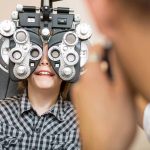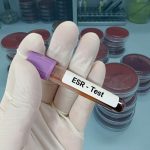What is E. coli?
E. coli (Escherichia coli) are a group of bacteria that are found in the gut of nearly all people and animals.
There are many different strains of E. coli. Some cause no illness or minor illness. Others can cause serious illness.
What are the symptoms of E. coli?
Minor illnesses caused by E. coli
Some strains of E. coli cause minor illnesses like:
- traveller’s diarrhoea and food poisoning — this results in diarrhoea, stomach pain, nausea and vomiting, usually lasting less than 5 to 10 days
- urinary tract infection — this can cause pain or a burning feeling when urinating (sometimes a urinary tract infection can make you feel you need to pee more often than usual and it can cause blood in the urine)
Serious illnesses caused by E. coli
Some strains of E. coli cause serious illnesses such as:
- pneumonia
- meningitis in newborn babies
- inflammation of the gallbladder (cholecystitis)
Haemolytic uraemic syndrome
Some types of E. coli can cause a rare but serious illness called ‘haemolytic uraemic syndrome’.
The E. coli bacteria that cause haemolytic uraemic syndrome make a toxin. It is called Shiga-toxin or STEC. The toxin gets into your blood and damages your red blood cells. It can cause anaemia and kidney failure.
Most people with E. coli infection don’t have the Shiga-toxin. It’s not very common.
Symptoms of haemolytic uraemic syndrome include:
- dehydration
- reduced urination
- tiredness
- pale skin (due to anaemia)
- yellow skin and eyes (due to jaundice)
- puffiness from fluid retention
- seizures (fits)
Some groups are at a higher risk of severe E. coli disease. These include young children and the elderly. People with a compromised immune system are also at a higher risk of severe illness.
How did I get an E. coli infection?
You can pick up E. coli infections in different ways. You can get it from:
- eating contaminated food such as under-cooked minced meat in hamburgers
- eating or drinking unpasteurised dairy products, such as raw milk
- eating or drinking fresh juices, and unwashed raw fruit and vegetables
- swimming, showering or drinking contaminated water, especially in rural areas or swimming pools
- personal contact with people who are sick, especially with their vomit or faeces (poo)
- direct contact with animals who carry the bacteria
When should I see my doctor?
See your doctor if:
- you have diarrhoea that is:
- very bad or
- has blood in it
- lasts more than 2 days
- you have a high fever with your diarrhoea
- you are dehydrated
- you have severe pain in your tummy or rectum
- you have signs of a urinary tract infection
- you are worried that you might have pneumonia
- you have symptoms of haemolytic uraemic syndrome
Also see your doctor if you are caring for a young child and:
- are concerned that they are unwell
- they’ve had diarrhoea for more than 24 hours
How are E. coli infections diagnosed?
A formal diagnosis of an E. coli infection usually needs a laboratory test of your stool (poo) sample.
The test will show if E. coli bacteria are present. The test will also show if toxins or poisons from E. coli are present.
A blood test can also:
- check for antibodies to your infection
- show if you have haemolytic uraemic syndrome
- show if you have sepsis
How are E. coli infections treated?
Treatment for E. coli depends on what part of your body is infected and how serious your illness is.
If you have diarrhoea and aren’t very sick, you should keep hydrated by drinking plenty of fluids. You can drink oral rehydration solution, which you can buy at a pharmacy. You can also drink diluted:
- juice or soft drink — mix 1 part drink to 4 parts water (for example, 40 ml drink with 160 ml water)
- cordial — mix 1 part cordial to 20 parts water (for example, 5 ml cordial with 100 ml water)
Don’t take anti-vomiting or anti-diarrhoeal medications unless your doctor has recommended them. Most people recover within 5 to 10 days without treatment.
Can E. coli infections be prevented?
You can reduce your chance of E. coli infection by not eating unclean or under-cooked foods.
You can also reduce your chance of getting E. coli by good hygiene. Always wash your hands after going to the toilet or changing a nappy.
It is important to prepare, cook and store your food safely.
Safe food handling will avoid transmitting the E. coli bacteria from one food item to another.
Raw fruits and vegetables should be washed in clean water. This will also reduce any E. coli contamination.
If you have been sick due to E. coli infection, you can also take steps to avoid infecting others.
- Wash any bedding, clothing or household surfaces that have been dirtied by diarrhoea or vomit.
- Avoid making food for others in your household until 24 hours after your last symptoms.
- Stay away from work, or keep your child home from childcare or school. You can return to work or school if you have gone 24 hours with no symptoms. If you work in a care setting or handle food you should stay home for 48 hours after your last symptoms.



